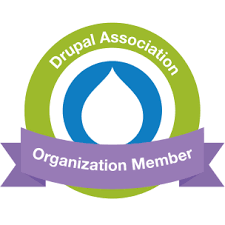Drupal Developer & Consultant - NYC & New Jersey
Hire Drupal Developer - Call: 862-596-0745
Open Source CMS
 We use an open source content management system (CMS) - Drupal to develop simple to advanced websites. We use Drupal because it helps lower your development cost and time to market while making content publishing easier and faster.
We use an open source content management system (CMS) - Drupal to develop simple to advanced websites. We use Drupal because it helps lower your development cost and time to market while making content publishing easier and faster.
My open source CMS preference and web application framework is Drupal. So I focus a lot on Drupal Module Development, Drupal Consulting, Drupal Template Design, and Drupal Implementation as well as on migrating content from older websites, CMS's, or other sources to Drupal. QuickStudy: Drupal: This open-source content management system offers a flexible way to build and organize Web sites, from Computerworld.
Open Source CMS
Open Source CMS - What is it?
Open source CMS's have been around for several years and provide a framework or the so-called plumbing so that we do not have to re-invent things for every new website. This information is from Wikipedia and helps to answer the question, What is a content management system?

An open source CMS is a software system used to manage and control a dynamic collection of Web material (HTML documents, images and other forms of media). A open source CMS facilitates document control, auditing, editing, and timeline management. A CMS typically has:
Call us, 862.596.0745 to get started with your Drupal. application.
Automated templates
Create standard output templates (usually HTML and XML) that can be automatically applied to new and existing content, allowing the appearance of all content to be changed from one central place.
Easily editable content
Once content is separated from the visual presentation of a site, it usually becomes much easier and quicker to edit and manipulate. Most open source CMS software includes WYSIWYG editing tools allowing non-technical individuals to create and edit content.
Scalable feature sets
Most open source CMS software includes plug-ins or modules (Drupal has 100's of modules to extend the basic functionality) that can be easily installed to extend an existing site's functionality.
Web standards upgrades
Active open source CMS software usually receives regular updates that include new feature sets and keep the system up to current web standards.
Workflow management
Workflow is the process of creating cycles of sequential and parallel tasks that must be accomplished in the CMS. For example, a content creator can submit a story, but it is not published until the copy editor cleans it up and the editor-in-chief approves it.
Delegation
Some open source CMS software allows for various user groups to have limited privileges over specific content on the website, spreading out the responsibility of content management.
Document management
Open source CMS software may provide a means of managing the life cycle of a document from initial creation time, through revisions, publication, archive, and document destruction.
Content virtualization
Open source CMS software may provide a means of allowing each user to work within a virtual copy of the entire Web site, document set, and/or code base. This enables changes to multiple interdependent resources to be viewed and/or executed in-context prior to submission.
Our services are built around open source CMS, Drupal Consulting, and Drupal design. The services are intended for any size business, non-profit, school, or government agency in New York City and New Jersey. We stay local because we think face-to-face meetings works better for meeting our customers goals. Call 862.596.0745 to learn more.

As a senior Drupal consultant, I've performed work on multiple levels: front-end ( drupal template design or themer 20% of the time), backend (drupal module developer 35%), and as a project manager (used AGILE as SDLC and SCRUM), a business analyst, and an implementer (45%).

